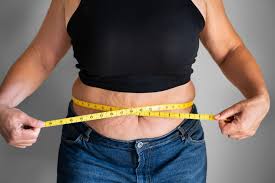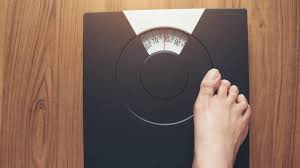
How to Lose Weight Before and After Menopause: 7 Tips to Get Rid of Belly Fat
Menopause often affects weight gain due to hormonal changes. You can control your weight during menopause. Just follow these tips to lose weight before and after weight loss. Losing weight during menopause can be difficult, but it is not impossible.
Hot flashes, night sweats, mood swings, and changes in libido are all symptoms of the menopause transition. This phase is the end of the menstrual cycle and usually occurs when a woman is 45 or 50 years old. These changes are mainly due to hormonal changes, aging, and lifestyle. Therefore, losing weight during menopause can be quite difficult. If you want to lose weight all over your body, make sure you eat healthy, stay hydrated, go for walks, or participate in other activities.
What is menopause?
Menopause is a biological process that marks the end of menstrual cycle and reproductive years. Women get menopause after they have not menstruated for 12 consecutive months. It usually occurs between the ages of 45 and 55, but can occur earlier or later. It includes the transition period (perimenopause), the menstrual cycle (menopause) and the period after menopause (postmenopause).

Menopause and weight gain
Here’s how menopause can cause weight gain:
1. Hormonal changes
Hormonal changes in women going through menopause can lead to increased obesity, according to a 2012 study published in the Journal of Menopause. Decreased estrogen causes fat to shift from the hips and thighs to the abdominal area. Low estrogen also slows down your metabolism, making it easier to gain and maintain weight. Hormonal changes during this time of life can cause insulin resistance, which makes it harder for your body to process sugar properly. In addition to weight gain, this can also cause increased blood sugar levels.
2. Age-related factors
Aging naturally causes muscle mass loss, which leads to a decreased metabolic rate. With less muscle mass, the body burns fewer calories at rest, which leads to weight gain. Muscle mass and weight gain can be exacerbated by a loss of body mass due to aging or by menopausal symptoms like joint pain and fatigue.
3. Changes in energy balance
As metabolic rate decreases, the body’s energy needs decrease. Continuing to eat the same amount of calories without making adjustments for lower energy needs can cause weight gain. Menopause symptoms, such as mood swings, anxiety and depression, can cause emotional eating, which can lead to weight gain.
4. Lifestyle factors
Aging and decreased energy lead to a sedentary lifestyle, causing weight gain. Poor sleep and poor sleep patterns during menopause can disrupt the balance of hunger hormones such as ghrelin and leptin. This can lead to weight gain and hunger for more calories and sugary foods, as well as reducing the body’s energy. Lack of sleep can also reduce energy levels, making it harder to exercise and maintain a healthy weight.
5. Psychological factors
Stress increases levels of cortisol, a stress hormone that promotes fat storage, especially around the belly. Stress can lead to overeating or choosing high-calorie foods.
How to lose during menopause?
Losing weight during menopause may seem difficult, but you can try these tips:
1. Follow a healthy diet
Eat more vegetables, whole grains, and lean meats. Reduce your intake of processed foods like cookies, cakes, and soft drinks, and drink plenty of water.
2. Get your body active
Take time to do aerobic exercises such as walking, running or cycling to burn calories. It builds muscle together with strength training, which helps speed up metabolism. In addition to band exercises, you can also do bodybuilding exercises such as push-ups and sit-ups.
3. Stay hydrated
Adequate fluid intake aids digestion and reduces the risk of diarrhea and constipation often associated with diabetes. However, avoid soda, as the high sugar in soda can cause weight gain.
4. Manage stress
Reduce stress by doing yoga or meditation in the morning. Try deep breathing or listening to calming music. Getting a good night’s sleep also regulates hunger hormones and helps melt belly fat.
5. Add healthy fats
Eat foods rich in omega-3 fatty acids, such as fish, flaxseed, and walnuts, to improve overall health, says Paul. Eat healthy fats, but avoid saturated fats, found in fried foods and snacks, which can contribute to weight gain.
6. Support from loved ones
You can join a support group or class to stay motivated. It can be helpful to include your family and friends in your weight loss journey. They will support you and encourage you. If they want to support you, you can ask them to be your exercise partners.
7. Regular checkup
See your doctor regularly to monitor your hormone levels, metabolic health, and overall health. Make appropriate adjustments to your diet and exercise according to your doctor’s recommendations.
Losing weight during pregnancy can be difficult due to hormonal changes, decreased metabolism, etc. However, eating well, being physically active, and managing stress can help with weight control.

